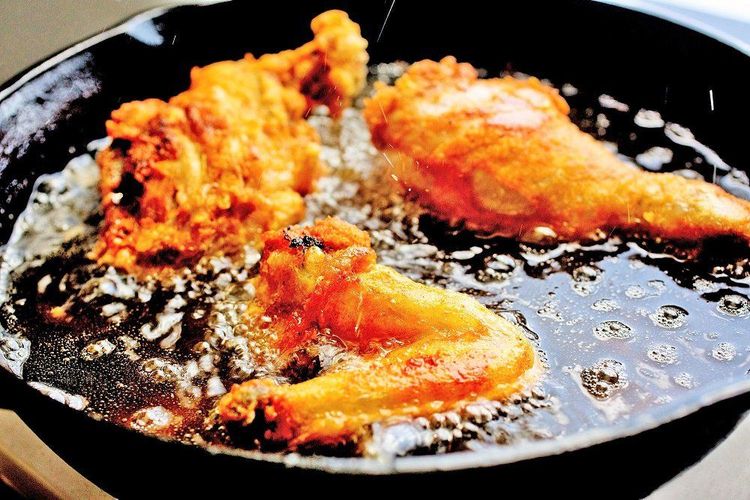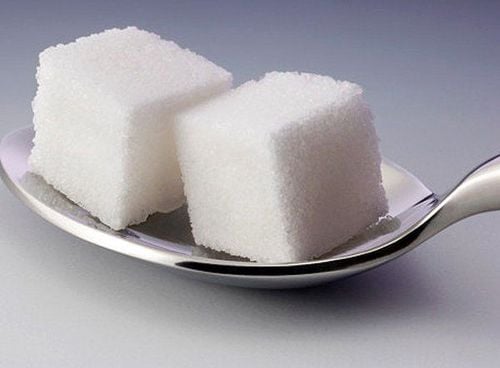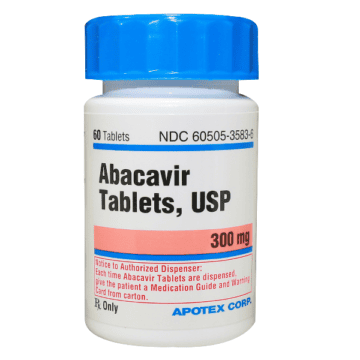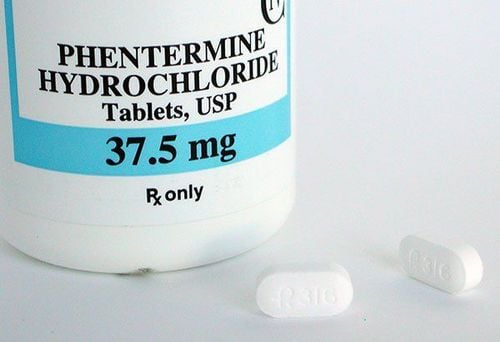This is an automatically translated article.
A scientific diet will help you have a resilient health and limit diseases. Proper nutrition is a necessary life principle to stay healthy, durable, resilient at work and less prone to chronic diseases as you age. Workers, both mind and body, need to follow the following key principles of proper nutrition.
1. Diet needs to meet energy needs, eating too little and too much is harmful
Labor consumes energy, the heavier the labor, the higher the demand for energy. If the diet lacks energy, the body will be tired, the labor productivity will be low, if prolonged, the body will suffer from malnutrition, the scientific name is called "permanent lack of energy". People who lack energy for a long time have poor health, low labor productivity and reduced resistance to disease.
On the contrary, if the diet is too rich in energy for a long time, it will lead to overweight and obesity. Obese people are prone to high blood pressure, diabetes, atherosclerosis... Therefore, each person should monitor their weight regularly to see if they are fat or thin? People often use the body mass index: weight (kg) / height (m)2, this index in the range of 18.5 - 25 is normal, too high or too low is not good.
2. The diet needs to provide enough nutrients
2.1 Protein group First of all, protein (protein): In a diet with 10-15% of energy provided by protein, the heavier the labor, the more protein needs to be increased. Protein provides essential components to build the body, ensures the body's growth and maintenance of vital activities, enhances the body's resistance to fight disease.
Proteins of animal origin (meat, fish, milk, eggs...) and plant foods such as beans, peas, peanuts, protein needed to maintain muscle strength when working. Red meat (such as pork, beef ...) has a lot of iron to help prevent iron deficiency anemia, especially important for young children, pregnant women and women of childbearing age.
However, eating a lot of red meat increases the risk of cardiovascular diseases, cancer, gout ... so you should not eat too much. Should increase the consumption of poultry meat (such as chicken, duck, geese, birds...) and should eat at least 3 fish meals per week. Small, well-cooked fish eat bones, shrimp and shrimp eat shells and crabs are a very good source of calcium for the body.
2.2 Fat group Fats (animal fats and vegetable oils) help provide energy for the body to function and grow, support the absorption of fat-soluble vitamins such as vitamins A, D, E, K Animal fat often contains a lot of saturated fat, which is difficult to absorb, so it should be used sparingly. Fish fat and poultry fat are rich in unsaturated fats, especially omega 3, omega 6, omega 9, which are very beneficial for health.
Vegetable oils are also often high in unsaturated fats, so they are good for the cardiovascular system and are recommended to be consumed such as soybean oil, sesame oil, sunflower oil, canola oil... But also There are some vegetable oils that are high in saturated fat (like palm oil) so they should not be eaten in large quantities.
Should not eat too much fried, fried, grilled dishes, but should increase eating boiled and steamed dishes to reduce the loss of nutrients and not change the food into substances that can be harmful to health. Oil and grease for frying only take a sufficient amount, use it once and then discard it, do not reuse it many times.
Limit eating grilled food because it increases the risk of cancer. Processed foods such as instant noodles that are high in trans fats also increase the risk of cardiovascular disease, so consumption should be limited.

Không nên ăn quá nhiều các món xào, rán, nướng
2.3 Carbohydrate group This is the main source of energy for the body to function. For adults, energy from the carbohydrate group should only account for 60-65% of total dietary energy, the rest from fat (20-25%) and protein (10-15%). %).
2.4 Groups of vitamins and minerals Vitamins and minerals (vegetables, tubers, fruits...) provide trace elements as well as protective substances, help the body develop healthy, enhance resistance , against diseases of all ages. Dark green leafy vegetables and yellow and red vegetables and fruits are a rich source of vitamin A to help brighten eyes, increase resistance, provide iron to help fight iron deficiency anemia, especially for the body. Children's bodies grow and develop well. In addition, vegetables and fruits also contain a lot of fiber and antioxidants, so they have the effect of improving health and preventing chronic non-communicable diseases.
Children also need to be trained to eat vegetables with proper preparation. People who are overweight, obese, have blood sugar disorders, and have diabetes should note that they should limit sweet and high-energy fruits such as bananas, mangoes, jackfruit, litchi ...
In addition, the excess of minerals such as Eating too much salt will increase the risk of hypertension, cerebrovascular accident, heart attack, stomach cancer, osteoporosis, kidney stones... Currently, most people eat an excess of 2 to 2 salts. 3 times the recommended intake of 5 grams of salt per day. Therefore, care should be taken to reduce salty spices that contain a lot of salt added in the cooking process. It is recommended to use salt and iodized soup powder to prevent goiter, intellectual disability and other disorders caused by iodine deficiency.
3. Make a reasonable diet

Uống đủ nước sạch hàng ngày (trung bình khoảng 1,5-2 lít) là cần thiết để có cơ thể khỏe mạnh
Mandatory breakfast before going to work because breakfast provides the body with energy and nutrients needed for morning labor after a long night on an empty stomach. The food should be balanced out for breakfast, lunch, and dinner, ensuring balance in each meal. Dinner should be eaten 2-3 hours before going to bed. Drinking enough clean water daily (about 1.5-2 liters on average) is also necessary to have a healthy body, especially on hot days. It is necessary to limit and not abuse alcohol. The National Institute of Nutrition's national survey of adults 25-64 years old showed a 1.6-fold increased risk of hypertension in men who drank more than 3 units of alcohol per day. For men should drink no more than 2 units of alcohol (equivalent to 2 pints of beer or 2 cups of 30ml of spirits) or women should not more than 1 unit of alcohol per day. Hope the above sharing helps you to rearrange your own and your family's diet so that it is more scientific and reasonable. Maintaining a reasonable diet along with a moderate and healthy lifestyle is essential to preserving the ability to work and youthful vitality in each person.
Please dial HOTLINE for more information or register for an appointment HERE. Download MyVinmec app to make appointments faster and to manage your bookings easily.
Article referenced source: National Institute of Nutrition












